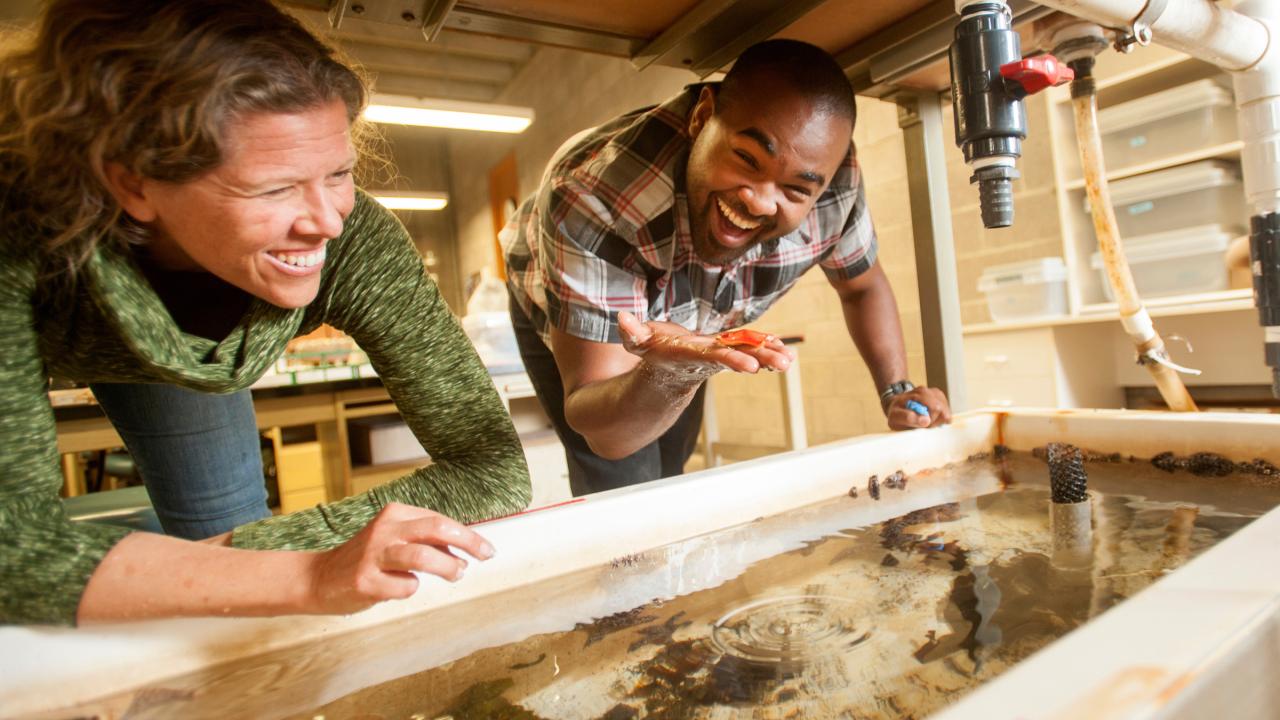In the world of environmental toxicology scholarship, UC Davis is a hotshot. Within the University of California system, we’re the only campus that offers an undergraduate degree in the subject.
If you’re going to major in environmental toxicology, however, you’ll need to know what it is.
What is environmental toxicology?
Environmental toxicology, or ETOX, as students like to call it, is the study of the effects of chemicals on human health and the environment.
It combines elements of biology and chemistry and other fields to help you understand the impact chemicals have on environmental systems and in living organisms. As an environmental toxicology major, you’ll study:
- How chemicals and biological agents move through the environment
- What happens to them over time
- What effects the exposure to these agents has on the health of people, animals and plants
What do environmental toxicologists do?
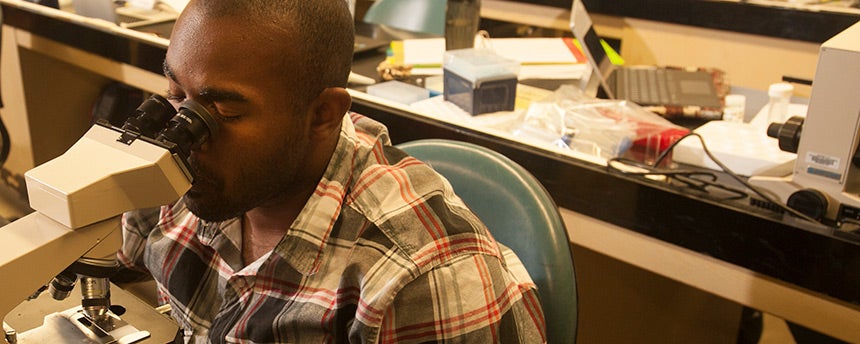
Here’s an example of what an environmental toxicologist might do: Maybe there are high levels of contaminants in the soil on a site where there used to be a dry-cleaning business, and the environmental firm you work for is in charge of cleanup so the land can be used for residential purposes. Your company would collect samples and analyze the data generated to assess the risk to the water supply, to the air and ultimately to people. And then you’d determine what needs to be done to clean up the site.
Turns out that toxicology is all about exposure assessment. “The dose makes the poison,” said Paracelsus, who was this really smart European scientist and physician from the 16th century. Actually, his given name was Philippus Aureolus Theophrastus Bombastus von Hohenheim, (I’m not kidding) and he also said, “The dose differentiates a poison from a remedy.” That gives you an idea of how environmental toxicology also connects to careers in pharmacology and medicine, one example being modern-day chemotherapy.
What is the major like?
UC Davis expertise in toxicology studies goes back to 1957, when researchers first began examining the effects of pesticides on the environment and people. A vanguard of the environmental movement, the Department of Environmental Toxicology has been around since 1968. It’s a relatively small department with about a dozen faculty members and a strong sense of camaraderie. As one of approximately 100 students in the major, you’ll experience small class sizes and get to know classmates and faculty well.
As you earn a Bachelor of Science in environmental toxicology, you’ll also have the opportunity to select an area of emphasis:
- Ecotoxicology and environmental chemistry
- Forensic science and regulatory toxicology
- Molecular and biomedical toxicology
- Your own emphasis designed with guidance from a faculty member
ETOX is a rigorous major. Newbies take two years of chemistry, a year of calculus and physics, plenty of biology, plus some statistical and computer analysis. Then you get to the really good stuff at the upper-division level, studying the toxic behavior of manufactured and natural chemicals to predict where chemicals will end up in the environment and in our bodies. You’ll learn about exposure limits and how to preserve the safety of our environment and ourselves.
What are the job prospects for environmental toxicology majors?
ETOX is one of those majors where you can graduate and directly enter the workforce. However, many alumni find their time in the working world inspires them to pursue further studies in science or medicine. Here’s a sampling of some of our graduates.
Scott Tiscione ’14
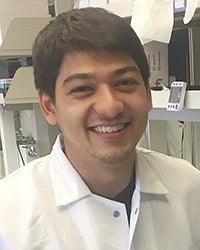
After graduation: AMEC Foster Wheeler, Environment and Infrastructure Division, toxicology consultant
Currently: Ph.D. student in pharmacology/toxicology at UC Davis
“What really grabbed my attention with the ETOX program is that it covers a lot of different areas of interest for me: environmental/public health, microbiology, toxicology, policy and chemistry. I think the program is great for a student with a ‘jack-of-all-trades’ mentality.”
Thomas Sears ’14
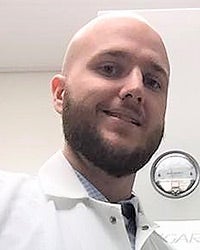
After graduation and currently: Ph.D. student in pharmacology/toxicology at UC Davis
“My mother was a Scottish environmental toxicologist and significantly influenced my decision to study environmental toxicology. After she passed away of cancer, I knew I wanted to do cancer research, and my degree in ETOX has benefited me greatly in this respect."
Brett Winters ’11
After graduation: Toxicologist, AMEC-Geomatrix Environment and Infrastructure
Currently: Ph.D. student in toxicology at University of North Carolina
“Environmental toxicology is a narrow field with broad applications — medicine, biotechnology, pharmaceuticals, agriculture, environmental mitigation and more.”
Elizabeth Marder ’11
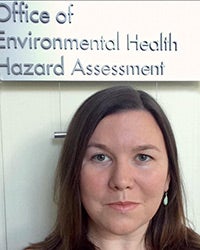
After graduation: Ph.D. in environmental health sciences at Emory University
Currently: Environmental scientist for the California Environmental Protection Agency
“My career path changed following my first ETOX course, when our professor told us, ‘Genes load the gun, but the environment pulls the trigger.’ This may be a simplistic way to express the interaction of genetics and the environment on health, but the concept still resonates with me even now, almost 10 years since I first heard it during a lecture about the Toxic Substances Control Act.”
Sandra Chang ’06
After graduation: Toxicologist at Chevron Corp. for two years, then obtained Ph.D. in pharmacology/toxicology at UC Davis
Currently: Drug-safety evaluation scientist for pharmaceutical company Gilead
“High school students know about environmental studies, and they know about chemistry. But most don’t even know that environmental toxicology is an option.”
Robin DeRieux is a senior writer for the College of Agricultural and Environmental Sciences.
